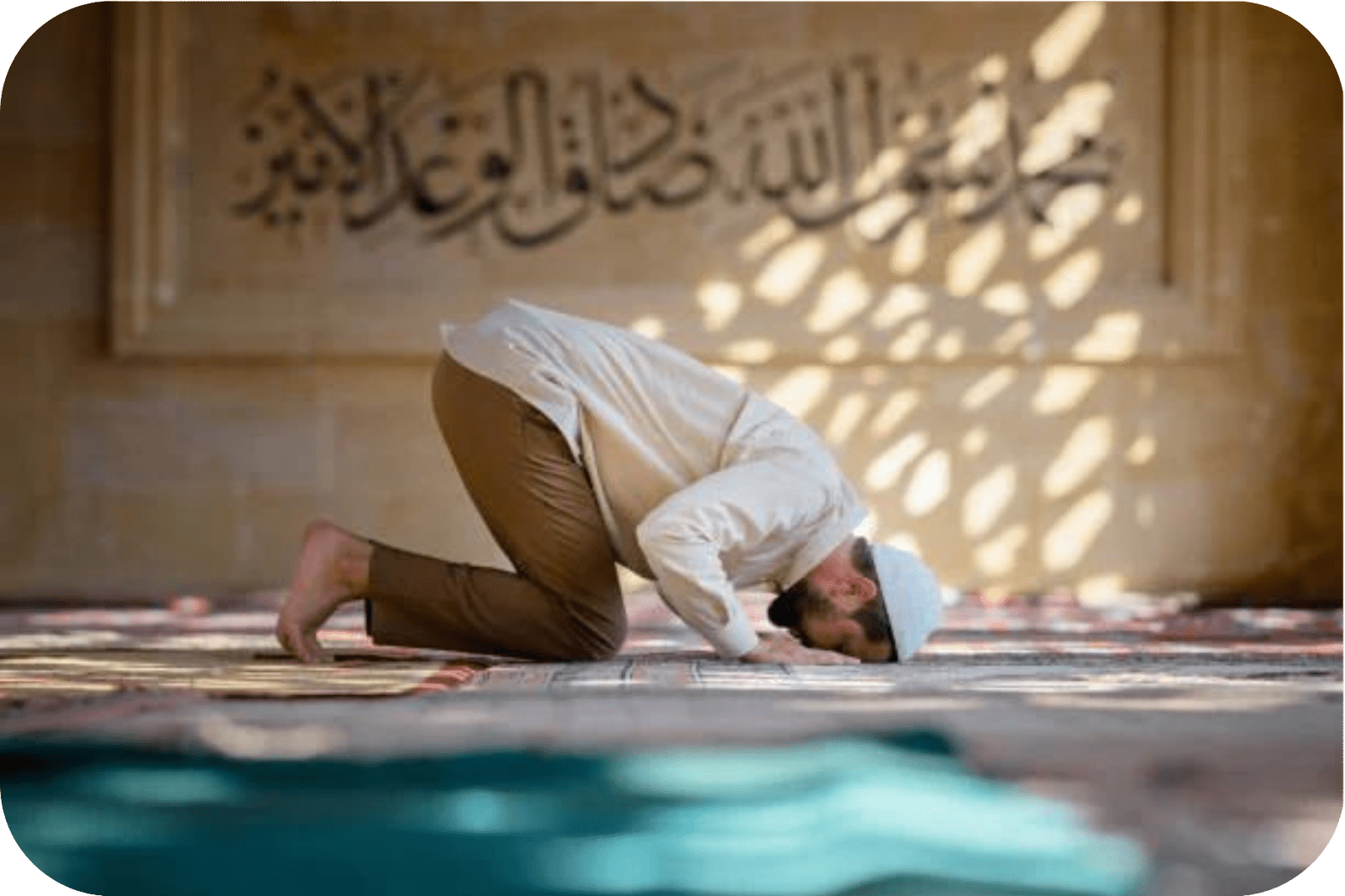The Ultimate Guide to Hajj Preparation
The Ultimate Guide to Hajj Preparation

Hajj is a sacred pilgrimage that holds great significance for Muslims around the world. It is one of the five pillars of Islam and is required for every able Muslim to perform at least once in their lifetime.
The journey of Hajj requires thorough preparation to ensure a meaningful and fulfilling experience. In this guide, we will walk you through the essential steps and considerations for a successful Hajj pilgrimage.
Browse our selection of Hajj and Umrah essentials, including abayas, hijabs, and prayer mats. Find everything you need for your journey to Makkah and Madinah.
Planning and Logistics
1. When is Hajj?
Hajj in 2024 is anticipated to take place between 14th June to the 19th June in the Gregorian Calendar or 8th to the 13th of Dhul Hijjah for the Islamic Calendar.
If you want to learn more, check out our recent guide where we provided detailed information about the start and end dates, along with insights into the significance of the journey and practical steps of the Hajj pilgrimage.
Prioritising this step allows you to plan your travel arrangements, accommodation, and participation in rituals effectively. Whether you're a first-time pilgrim or returning for another Hajj, staying informed about the dates ensures you can fully experience the spiritual significance of this sacred journey.
2. Making Travel Arrangements
Making travel arrangements for Hajj is crucial for a smooth pilgrimage experience. Start early and research reputable agencies specialising in Hajj trips. These agencies offer comprehensive packages covering transportation, accommodation, meals, and guided tours. Booking through a trusted agency ensures logistical aspects are efficiently handled.
Consider the trip duration, accommodation proximity to holy sites, transportation options, and additional services provided by the agency. Be mindful of visa requirements, health and safety guidelines, and Saudi government regulations. Stay updated on any changes or updates related to travel restrictions and safety measures.
From 2023, pilgrims had to register for Hajj through the official Saudi Hajj Ministry portal, with help from authorised agencies. At that time, there might have been a system to control the number of pilgrims, so it was crucial for pilgrims to collaborate closely with their agencies to grasp this process and stay informed about any changes in visa requirements.
In summary, making Hajj travel arrangements involves early planning, research, and consideration of various factors. Booking through reputable agencies and staying informed about guidelines ensures a fulfilling and safe pilgrimage experience.
3. Securing Necessary Documents
Ensure all necessary documentation is in order to avoid any last-minute complications. These documents typically include a valid passport with at least six months' validity, a Hajj visa issued by the Saudi government, and any required permits or authorizations for travel and accommodation.
Start by checking the expiration date of your passport and renew it if necessary. Apply for a Hajj visa through an authorised Hajj travel agency or the Saudi embassy in your country. The visa application process may require specific documentation, such as proof of vaccination, a medical certificate, or a letter of recommendation from a recognized Islamic institution.
Verify the accuracy of all information on your visa and travel documents to avoid any issues during your journey. Keep copies of important documents, such as your passport, visa, and itinerary, in a secure location or store digital copies in a password-protected device or cloud storage.
Spiritual Preparation
1. Learning Hajj Rituals
Begin by studying the fundamental rites of Hajj, such as Tawaf (walking around the Kaaba.), Ihram (the state of consecration), Saee (running between Safa and Marwa), Stoning of the devil, and Qurbani (sacrifice).
Again you can check our comprehensive guide detailing these rituals, and familiarise yourself with the sequence and significance of each one, as well as the prescribed prayers and supplications associated with them.
Seek guidance from knowledgeable scholars, attend pre-Hajj workshops or seminars, and utilise reputable online resources like our blog to deepen your knowledge of Hajj rituals. Engage in discussions with fellow pilgrims or mentors who have previously performed Hajj to gain practical insights and advice.
2. Mental and Emotional Readiness
Preparing mentally and emotionally for Hajj is as important as physical preparation. Recognise that Hajj can be physically demanding and emotionally overwhelming, requiring patience, perseverance, and resilience.
Reflect on the significance of Hajj in your life and the spiritual journey ahead. Set aside time for introspection, self-reflection, and prayer to cultivate a positive mindset and emotional stability. Address any anxieties or concerns you may have about the pilgrimage and seek support from family, friends, or religious leaders.
Practice mindfulness, meditation, or relaxation techniques to manage stress and anxiety leading up to Hajj. Focus on maintaining a sense of inner peace, gratitude, and surrender to the will of Allah throughout the journey.
Remember that Hajj is a transformative experience that offers spiritual growth, forgiveness, and blessings for those who embark on this sacred pilgrimage.
Physical Readiness
1. Health and Vaccinations
Ensuring your health is in optimal condition is crucial for a successful Hajj journey. Schedule a visit to your healthcare provider well in advance to discuss any necessary vaccinations and address any underlying health concerns. It's essential to stay updated on vaccinations recommended for travel to Saudi Arabia.
Additionally, consider carrying a small medical kit with basic supplies such as pain relievers, bandages, and medications for common ailments.
2. Packing Essentials
Packing strategically can significantly enhance your comfort and convenience throughout the pilgrimage. Begin by selecting lightweight and breathable clothing suitable for the warm climate of Makkah, considering the rigorous physical activities involved in Hajj rituals.
Don't forget to include comfortable footwear designed for long periods of walking and standing. Other essential items to pack include personal hygiene products, sunscreen, a refillable water bottle, a portable charger for electronic devices, and a small backpack or waist pouch to carry necessities during rituals.
Financial Planning
1. Budgeting for Hajj Expenses
As we discussed, Hajj entails various expenses, including airfare, accommodation, transportation, food, and miscellaneous costs… Begin by estimating the total cost of your pilgrimage and create a detailed budget outlining all projected expenses.
For instance, the average cost of a total Hajj package in the UK can vary considerably, ranging from £4,000 to £9,000 per person.
Consider factors such as the type of package, souvenirs, and unforeseen circumstances. Identify potential sources of funding, such as personal savings, loans, or contributions from family members or community organisations.
2. Saving and Fundraising
It's important to note that pilgrims should not embark on Hajj until all debts are cleared. Therefore, prioritise debt clearance as part of your financial preparations for Hajj, start saving in advance to build a dedicated pilgrimage fund.
Set up a separate savings account and contribute regularly to reach your financial goal. Explore fundraising opportunities within your community or religious congregation, such as organising events or seeking sponsorships.
Additionally, consider Islamic financial products like Hajj savings schemes or interest-free loans to finance your pilgrimage responsibly.
3. Financial Management During Hajj
Once you've arrived in Makkah, it's essential to manage your finances wisely. Keep track of your daily expenses and adhere to your budget to avoid overspending. Choose cost-effective accommodation and transportation options that meet your needs without exceeding your budget.
Be mindful of your spending on souvenirs and gifts, prioritising essential purchases. By practising prudent financial management during Hajj, you can focus on the spiritual aspects of the pilgrimage without financial worries.
Conclusion
Remember that thorough preparation is key to a successful and meaningful pilgrimage. By understanding the significance of Hajj, making logistical arrangements, and preparing spiritually, mentally, and physically, you can approach this sacred journey with confidence and reverence.
At Riwaya, our mission is to support Hajj pilgrims every step of the way, providing quality products and resources to enhance their experience. May your Hajj pilgrimage be a transformative experience filled with blessings, forgiveness, and spiritual growth.
Buying at Riwaya
As you embark on your Hajj journey, we invite you to explore our curated selection of Hajj and Umrah essentials at Riwaya, where quality meets affordability.
From abayas and hijabs to prayer mats and accessories, we offer everything you need for your pilgrimage to Makkah and Madinah.
At Riwaya, Shop with confidence and convenience, knowing that each product is carefully sourced and crafted to enhance your Hajj experience.
Selling at Riwaya
Are you a seller of Islamic products looking to reach a global audience of discerning buyers? Join Riwaya and showcase your offerings to a community of individuals seeking quality items that enrich their spiritual lives.
As a seller on Riwaya, you'll benefit from our platform's visibility and reputation as a trusted marketplace for authentic Islamic goods. Our commitment to quality and customer satisfaction ensures that your products are presented in the best possible light, attracting buyers who value craftsmanship, tradition, and spirituality.
Join Riwaya today and become part of a vibrant community dedicated to promoting Islamic culture and heritage worldwide. Let us help you connect with customers who share your passion for excellence and authenticity in Islamic products.
FAQs
Q1: What is Hajj?
Hajj is a sacred pilgrimage to the holy city of Makkah, one of the Five Pillars of Islam. It is an obligatory religious duty for Muslims who are physically and financially able to undertake the journey at least once in their lifetime.
Q2: When is Hajj performed?
Hajj takes place during the Islamic month of Dhul-Hijjah, the twelfth month of the Islamic lunar calendar. The pilgrimage occurs from the 8th to the 12th of Dhul-Hijjah, with specific rituals performed on each day.
Q3: What are the basic requirements for performing Hajj?
The basic requirements for performing Hajj include being Muslim, reaching the age of puberty, being of sound mind, and having the physical and financial means to undertake the journey. Additionally, pilgrims must be in a state of ihram, a state of ritual consecration, before entering the boundaries of the holy sites.
Q4: How long does Hajj last?
Hajj lasts for approximately five days, beginning on the 8th and ending on the 12th of Dhul-Hijjah. However, the duration may vary depending on the specific rituals and circumstances of each pilgrim.
Q5: What are the rituals of Hajj?
The rituals of Hajj include Tawaf (circumambulation of the Kaaba), Saee (running between Safa and Marwa), standing in prayer at Mount Arafat, symbolic stoning of the devil, and the sacrifice of an animal. These rituals commemorate the actions of Prophet Ibrahim (Abraham) and his family.
Q6: What is the significance of performing Hajj?
Performing Hajj is a profound spiritual journey that symbolises unity, humility, and devotion to Allah. It is an opportunity for Muslims to cleanse their souls, seek forgiveness for past sins, and strengthen their faith through acts of worship and obedience.
Q7: Who is obligated to perform Hajj?
Hajj is obligatory for every adult Muslim who meets the criteria of physical and financial capability. It is a once-in-a-lifetime duty for those who are physically fit, financially stable, and able to undertake the journey safely.
Q8: Can non-Muslims participate in Hajj?
Hajj is a religious obligation exclusively for Muslims, as it involves specific rituals and acts of worship that are integral to the Islamic faith. Non-Muslims are not permitted to participate in the pilgrimage to the holy sites in Makkah. However, they are welcome to observe and learn about the Hajj experience from a respectful distance.



